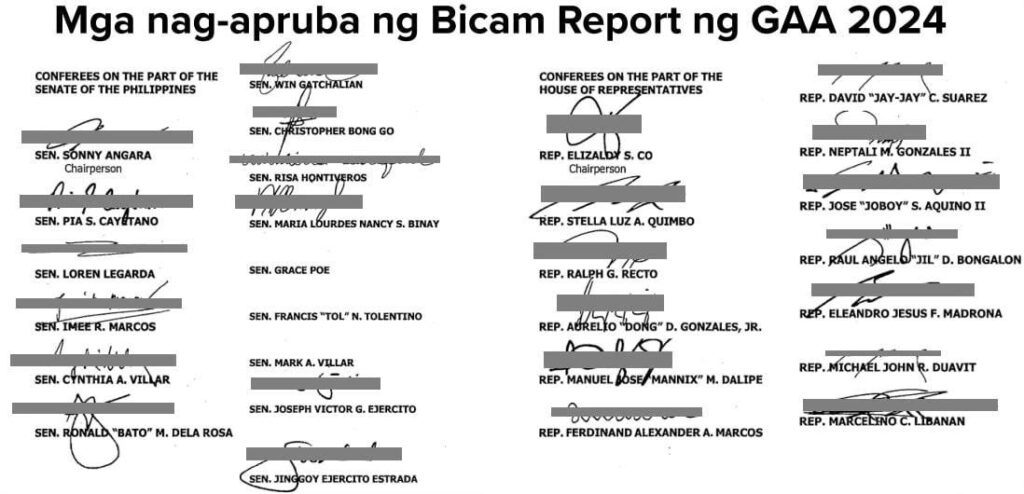The Senate’s move to archive the impeachment case against Vice President Sara Duterte, framed as a lawful respect for the Supreme Court’s unanimous decision, reads like a cautious nod to due process. It signals a court’s desire to ensure that the way impeachment complaints are initiated — and who may stand as impeachable — is guided by constitutional guarantees of due process and equal protection.
On the surface, that is legally and technically sound. But its political reverberations have been swift and polarizing, pulling Filipino public life into sharper, sometimes reflexive, divides. Legal correctness and political calm are not the same thing. A decision that emphasizes procedural safeguards can, in practice, become a precipitant of polarization when people read it as a victory or defeat for their side, or as a sign that the system is being gamed to stall accountability. The archiving, even if justified by the Supreme Court’s reading of due process, becomes a ground for aggravating political differences rather than a neutral correction of process. In this light, the episode exposes a broader worry: that the position of the institutions themselves—how the Senate, the House, and the Court interact—has become a source of strategic leverage rather than a pathway to stable governance. One may fault the court for failing to balance competing interests with enough public persuasion.
The constitutional test is not merely legal but political: when a decision feels retroactive or retrofitted to an immediate crisis, it risks being interpreted as a statement about power rather than a principled resolution of rights. And while the constitution protects procedural rigor, the country’s audience expects that the outcomes of such rulings will help heal political fractures, not widen them. In that sense, the Supreme Court’s insistence on correcting the process, without delivering a clear resolution to the underlying constitutional crisis, leaves a shadow over the institutions and a cloud of uncertainty over the public’s confidence. Equally important is accountability beyond the courtroom. If we are to uphold the rule of law, then those who influence or delay impeachment proceedings—the Secretary General of the House, and others who may have appeared to steer events—deserve scrutiny. Questions about what pushed the House to sit on a case that could have triggered a crisis deserve transparent answers. The integrity of the process depends on such accountability. To reframe this as merely a matter of who won a procedural skirmish risks neglecting the broader obligation to learn from missteps and to fix the system so that future crises are not shaped by bottlenecks or partisan calculus.
The decision to archive should not be read as a final verdict on Vice President Duterte or on the validity of impeachment itself. It is, in essence, a diagnostic tool: it seeks to prevent a miscarriage of due process from becoming a national injury. Yet the danger is real when the public perceives that the act of archiving is a shield for political expediency rather than a safeguard for legal fairness. If those who support the Vice President Sara Duterte believe in her innocence, the call to impeachment should be framed not as a probe to exonerate but as a rightful channel to achieve clarity and justice. When a public official senses that the process may be weaponized to delay or derail accountability, the remedy is not to abandon the process but to insist on its fairness with greater transparency and speed.
What Filipinos deserve is governance with less spectacle and more certainty. The tradition of due process must be protected, but so must the nation’s trust in its institutions. This means clearer timelines for actions, more open communication about why certain steps are taken, and a willingness to confront uncomfortable questions about how decisions are made and who influences them. It also means recognizing that constitutional disputes can be a source of national strength when they illuminate how power is exercised and checked, rather than a perpetual theater of blame. If the pro-Vice President believes there is nothing to fear from scrutiny, then the proper recourse is to pursue accountability within the constitutional framework and to pursue justice with vigor and openness. The absence of a definitive resolution today should not become an invitation to paralysis tomorrow. A mature democracy requires that procedural safeguards coexist with a sense of political responsibility: to explain, to justify, and to correct when needed, all in a manner that serves the public interest rather than partisan convenience.
Ultimately, the challenge is to view this episode as a test of national maturity. The architecture of our checks and balances must withstand episodic crises without becoming a casualty of them. We owe it to the Filipino people to transform the mutual suspicion born of controversy into a more transparent, accountable, and steady path forward. If the impeachment process is to be a tool for accountability, it must be guided by clarity, speed, and integrity—achieving justice not through perpetual impasse, but through decisions that reinforce the rule of law and renew public confidence in governance.




